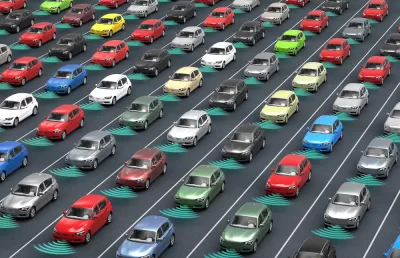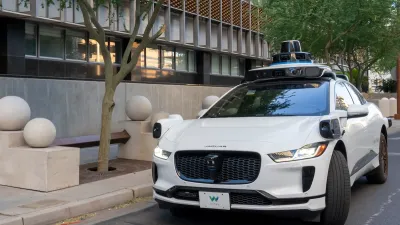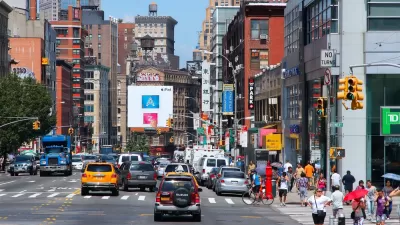It's not all free flowing commutes and world peace in an autonomous vehicle-filled future.

A new study published by the Union of Concerned Scientists points out the potential negative outcomes of self-driving car technology, and lists policies that could ensure benefits for more people.
The potential negative outcomes are pretty bad, however, including worsening congestion and increasing inequality.
Dan Robitzski shares news of the study in an article for futurism, and here's his summary of the potential negative outcomes of massive adoption of autonomous vehicle (AV) technology: "Ultimately, the research suggests that introducing autonomous vehicles to the area would increase traffic by 66 percent, and that the added congestion would likely benefit the wealthy and take opportunities away from low-income communities."
The report includes a number of recommendations that could help mitigate these potential negative outcomes, including pooling rides (potentially by fining single-passenger trips) and investing in public transit that can avoid the new congestion induced by AVs.
FULL STORY: Scientists Warn Self-Driving Cars Could Worsen Inequality

Study: Maui’s Plan to Convert Vacation Rentals to Long-Term Housing Could Cause Nearly $1 Billion Economic Loss
The plan would reduce visitor accommodation by 25,% resulting in 1,900 jobs lost.

North Texas Transit Leaders Tout Benefits of TOD for Growing Region
At a summit focused on transit-oriented development, policymakers discussed how North Texas’ expanded light rail system can serve as a tool for economic growth.

Why Should We Subsidize Public Transportation?
Many public transit agencies face financial stress due to rising costs, declining fare revenue, and declining subsidies. Transit advocates must provide a strong business case for increasing public transit funding.

How to Make US Trains Faster
Changes to boarding platforms and a switch to electric trains could improve U.S. passenger rail service without the added cost of high-speed rail.

Columbia’s Revitalized ‘Loop’ Is a Hub for Local Entrepreneurs
A focus on small businesses is helping a commercial corridor in Columbia, Missouri thrive.

Invasive Insect Threatens Minnesota’s Ash Forests
The Emerald Ash Borer is a rapidly spreading invasive pest threatening Minnesota’s ash trees, and homeowners are encouraged to plant diverse replacement species, avoid moving ash firewood, and monitor for signs of infestation.
Urban Design for Planners 1: Software Tools
This six-course series explores essential urban design concepts using open source software and equips planners with the tools they need to participate fully in the urban design process.
Planning for Universal Design
Learn the tools for implementing Universal Design in planning regulations.
Ascent Environmental
Borough of Carlisle
Institute for Housing and Urban Development Studies (IHS)
City of Grandview
Harvard GSD Executive Education
Toledo-Lucas County Plan Commissions
Salt Lake City
NYU Wagner Graduate School of Public Service





























